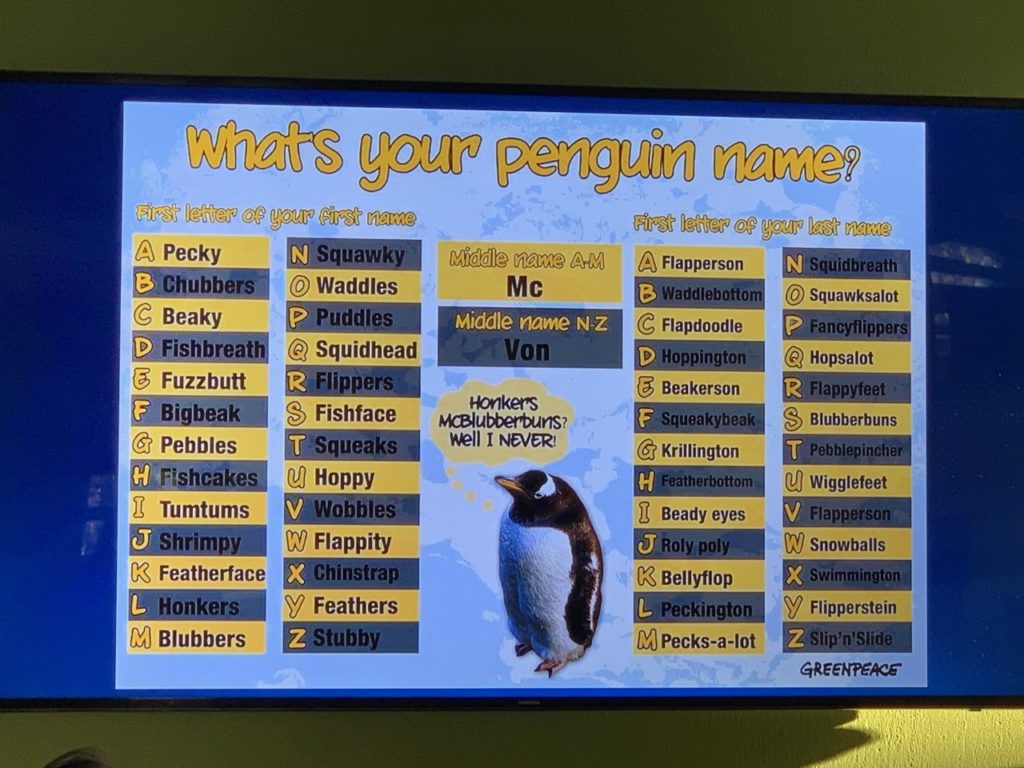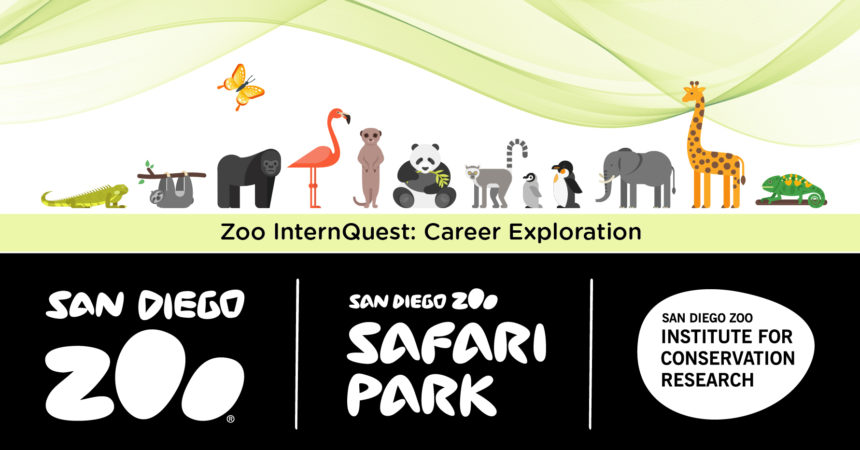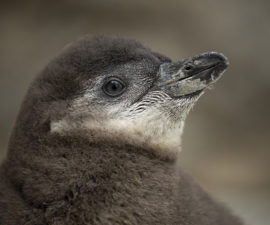Zoo InternQuest is a seven-week career exploration program for San Diego County high school juniors and seniors. Students have the unique opportunity to meet professionals working for the San Diego Zoo, Safari Park, and Institute for Conservation Research, to learn about their jobs, and then blog about their experience online. Follow their adventures here on the Zoo’s website!

Debbie Denton is a Wildlife Care Specialist in the San Diego Zoo’s Bird Department. She grew up wanting to be a dolphin trainer, but ended up finding her passion for penguins. She graduated from Rutgers University in New Jersey with a major in philosophy and a minor in biology. Wanting to get out of New Jersey after her schooling, she moved to San Diego. She applied for a job at Seaworld to hopefully gain experience working with dolphins. Though she was unable to work with dolphins, she landed a job in Seaworld’s Penguin Encounter where she stayed for the next 23 years. At Seaworld, she worked with many sub-Antarctic penguins which aren’t quite the same as the African penguins she now works with at the Zoo. It took her some adjusting after coming to the Zoo, but she loves her job more than ever. The penguin habitat at the Zoo has a 170 foot long, 200,000 gallon pool, which is the biggest penguin habitat in the United States. She was able to select the substrate for the habitat, and even travelled to Africa to study these penguins in preparation for the opening of this new habitat. Her passion for penguins and their conservation is sure to benefit the African penguin species.

When one thinks of penguins, they probably imagine all the Christmas cards with them hanging out with Santa and polar bears. However, all 18 species of penguins reside below the equator, with four types preferring warmer climates such as the African penguin. These penguins usually weigh around 3 – 4 kgs (6.5 – 9 lbs) but carry a lot of personality in their small size. African penguins live in colonies often filled with drama, and they tend to be very feisty, defying the cute cuddly stereotype people have about penguins. They keep the penguins very organized at the Zoo, having both name and number identification tags located on their flippers. Their substrate is a mixture of rocks that helps their feet so they don’t develop bumblefoot, which are sores that grow on the foot if they walk on flat surfaces too much. When it comes to feeding Ms. Denton uses a mix of herring and capelin, which the penguins eat until they’re full. In their habitat, they also have a number of nest boxes that breeding pairs can lay eggs in. They have a system in place when it comes to breeding, to ensure genetic diversity, which is part of the Species Survival Plan. Each penguin pair is associated with a number relating to it’s genetic value, since the goal is to create a genetically diverse colony as a back-up for wild populations. While the penguins at the Zoo live safe and happy lives, wild African penguins face a lot of threats.

The African penguin population has been losing about ninety birds every week since 1956, which caused them to be added to the endangered species list in 2010. Overfishing, climate change, oil spills, and changes in the ecosystem all play a role in the rapid decrease of African penguins. Ms. Denton has been working with the penguins for many years, trying to maintain a healthy population with genetic diversity that could potentially benefit conservation efforts in the future. She works with the Southern African Foundation for the Conservation of Coastal Birds (SANCCOB), which focuses on rescuing penguins from dangerous situations and rehabilitating them. For example, in June 2000, they captured, cleaned, and rehabilitated 19,000 penguins affected by the MV Treasure oil spill. Ms. Denton taught us about two other SANCOOB programs that have been very successful in penguin conservation. The Chick Bolstering Program allows for abandoned or starving chicks to be cared for until they are ready to be released back to their colonies. The Chick Rearing Unit is similar but focuses more on raising unborn chicks until they can be released. A total of 7,000 penguins have been released back into the colonies since these programs began. African penguins need all the help they can get, so Ms. Denton asks that everyone limit their plastic use. By doing so, you can set an example for others, and get one step closer to saving these amazing penguins.

The interns are enjoying a presentation Ms. Denton put together in order to teach them more about African penguins. They learned about the threats geared toward these penguins, how they can help, and also about organizations such as SANCCOB. SANCCOB provides 24/7 rescue services for sick and abandoned seabirds along the South African coastline and is an organization that anyone can volunteer for!
Ms. Denton has a few helpful tips for anyone looking for any advice about their future in animal care. She recommends getting a grasp on animal behavior, to better understand the animals you will be working with. A penguin twisting its head from side to side means it either wants attention, or feels threatened. However, a lot about the job is learned through experience, and you can only learn through doing. She also recommends getting an education that corresponds with the career. However, she highlights the importance of experience above all else, and experience is everywhere, either through internships and volunteering, or working full-time. A place she recommends is Nurtured by Nature, which provides staff with hands-on experience that many places do not offer, and helps teach people about animal behaviors necessary for the future. If Ms. Denton could do it over, she would do nothing differently, as she is happy with where she is. She has grown attached to the birds at the San Diego Zoo, and would not want anything else. Ms. Denton likes to tell everybody that you do not do the job for the pay, but for the passion of helping animals.

Ms. Denton works hard every day to improve the lives of African penguins, both in and outside of the Zoo. In addition to caring for them expertly, she also spends time educating people (like the ZIQ Interns) on her job and love for penguins! Having worked with penguins for over 25 years now, her love for the creatures doesn’t seem to be diminishing anytime soon. Ms. Denton’s expertise grows every day, alongside the amazing experiences she has. She has a clear and deep knowledge of penguin behavior, and a comfortable relationship with the penguins she works with. The saying “birds of a feather flock together” rings true when discussing Ms. Denton and her African penguin coworkers.

Week Two
Winter Session 2020


